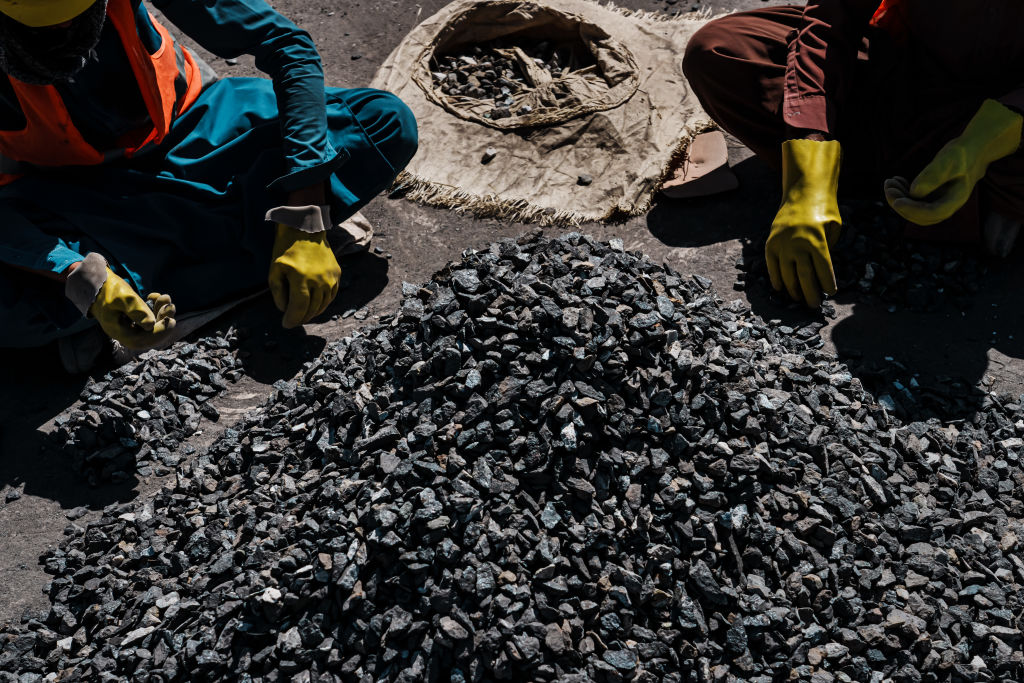
Edging away from the unreliable China supply chain, the Pentagon is going in-house.
The Pentagon is making a signal shift in its defense industrial policy. In a recent move, the Department of Defense (DOD) has acquired a significant stake in MP Materials, a US domestic rare earth minerals mining company. Consistent with the Trump administration’s objective to reduce or eliminate America’s dependence on China for supply chains critical to national security, this move is seen as a strategic step. It aims to establish a defense industrial policy that can provide for a surging production capability more rapidly to meet emerging threats. When the emerging threat is China, remaining hostage to the People’s Republic of China (PRC) for the essential war materials would be insanity.
Rare Earth Minerals Aren’t Optional
It has been no secret that the US needs rare earth minerals for technologically sophisticated weapon systems, as well as for semiconductors and electric vehicle batteries. For the defense industrial base, the situation has become critical. The Biden administration assured “Americans it is monitoring the situation,” Liberty Nation News reported. “Gallium, germanium, and antimony are vital inputs for defense technologies,” according to the Center for Strategic and International Studies (CSIS). But China supplies 98% of primary gallium, 91% of germanium, and 63% of US antimony.
“The United States has no domestic antimony production and severely limited stockpiles,” CSIS reported. What’s worse, since export restrictions were imposed in September, the number of shipments from China dropped 97% while prices rose 200%. Antimony is in batteries, electronics, specialty glass products, and fireproofing compounds. To reduce dependence on China for rare earth minerals and refined specialty metals, the Trump administration is not just monitoring but investing in sources in the US and friendly nations.
Central to the US-Ukraine agreement is securing alternative sources for rare earth minerals. Now, the Trump administration is looking within to ensure a reliable, secure supply chain for the critical natural resources.
Cutting the China Ties
The Daily Caller explained:
“The Department of Defense (DOD) will purchase $400 million of stock in MP Minerals, which operates the only U.S.-based rare earth minerals mine in Mountain Pass, California, according to the company’s announcement. The purchase is intended to reduce US dependence on foreign imports for the critical minerals used in advanced manufacturing, with China being by far the largest global producer and exporter of the minerals … MP Minerals will build a second manufacturing plant at an undecided location to support the production of rare earth magnets … The DOD will receive all of the magnets produced at the new facility for ten years after its construction.”
MP Materials Corp. described the nearly half-a-billion-dollar investment in the company as a “transformational public-private partnership” that would “dramatically accelerate the build-out of an end-to-end US rare earth magnet supply chain and reduce foreign dependency.” MP Materials’ Mountain Pass mine is the only operating US rare earth minerals mine that focuses on light earths such as neodymium and praseodymium.
The move by the Department of Defense, in terms of its broader implications, represents a significant step toward achieving “strategic autonomy” in the supply chain for critical minerals. Other US-based corporations in the rare earth production market sector can view what the Pentagon is doing as a model for additional public-private partnerships. The mining and refining of rare earth minerals are extremely expensive, and the cost has kept production volumes low. With the new willingness of the Defense Department to share the burden of capital and operating expenses, producing rare earth products for US defense and commercial consumers at scale has the potential to drive the price down.
Generally, the federal government attempts to avoid commercial activities that compete with private businesses. The Defense Department uses the Office of Management and Budget (OMB) Circular A-76 as its guide to evaluate whether activities, such as rare earth processing, should be contracted directly with firms like MP Materials rather than being manufactured by government enterprises. The public-private partnership relationship is a satisfactory approach to maintaining compliance with the spirit and regulatory requirements of OMB Circular A-76. The alternative would be a government-owned enterprise, which carries a host of complications, particularly when the government enters a market for the first time, as it would in the rare earth minerals mining and refining industry.
Achieving “strategic autonomy” is a worthwhile goal, and this significant step in securing a critical defense supply chain, combined with tariffs that prompt more US domestic production, is an encouraging development. It demonstrates an all-of-government approach to the America First objective.
~
The views expressed are those of the author and not of any other affiliate.
Liberty Nation does not endorse candidates, campaigns, or legislation, and this presentation is no endorsement.
















